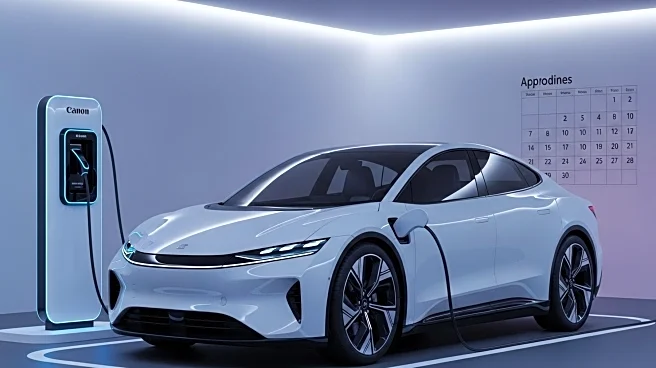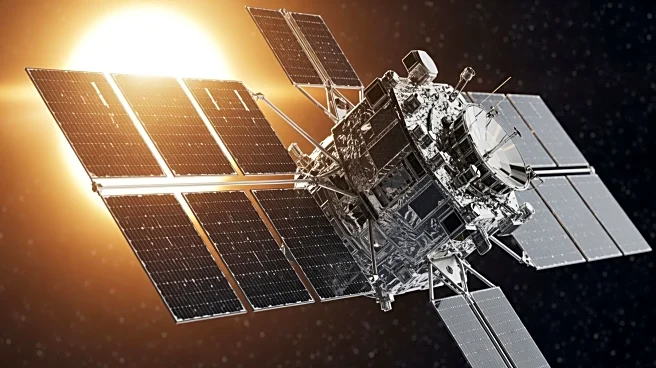What's Happening?
Electric vehicle (EV) registrations for legacy automakers surged by 27% in July as consumers rushed to take advantage of a $7,500 federal tax credit before its expiration on September 30. According to S&P Global Mobility, brands such as Chevrolet, Honda, and Volkswagen experienced significant growth in EV registrations, while Tesla and Rivian saw a decline. The overall market share for EVs in the U.S. rose to 8.9%. This increase in registrations highlights the impact of the federal tax credit on consumer purchasing decisions, as buyers seek to capitalize on the financial benefits before they are no longer available.
Why It's Important?
The impending expiration of the federal tax credit for electric vehicles is a critical factor influencing the current surge in EV registrations. This trend underscores the importance of financial incentives in driving consumer adoption of electric vehicles, which are essential for reducing carbon emissions and transitioning to sustainable transportation. The increase in market share for legacy automakers suggests a growing competitiveness in the EV market, which has been dominated by Tesla. The expiration of the tax credit could slow the momentum of EV adoption, potentially affecting the automotive industry's efforts to meet environmental goals and regulatory requirements.
What's Next?
As the September 30 deadline for the EV tax credit approaches, it is expected that the surge in registrations will continue. Automakers and dealerships may intensify marketing efforts to attract buyers before the incentive ends. The expiration of the tax credit could lead to calls for new policies to support the EV market, as stakeholders seek to maintain the growth trajectory of electric vehicle adoption. The automotive industry may also explore alternative strategies to incentivize consumers, such as offering manufacturer rebates or developing more affordable EV models.









